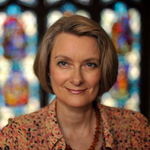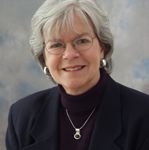Missiology as a Practical Theological Discipline
A Consultation on the Contributions of Mission History and Sociology of Religion toward the Development of Missiology as a Practical Theological Discipline
Principal Co-Investigators: Dr. Dana Robert and Dr. Nancy Ammerman

A new era of engagement of the Christian church with the world seems to be emerging. Campaigns like ONE raise hopes, concerns, and lots of questions. The World Bank now has an entire department working with religious communities on issues of development, and many church leaders are uncertain whether that is a good or bad thing. Engagement of congregations in short-term mission projects is increasing exponentially, although many are uncertain why or how they should sponsor such programs. The fundamental question this raises for us as scholars is how to make the past experience of the church with the world speak to the current situation.

Placing today’s church in conversation with its history is close to the heart of what practical theology attempts to do. Today’s lived practices need the wisdom of the larger and longer traditions of the church, but retrieving and understanding those traditions is a recurring methodological challenge in the field. Before we can hope to make the strategic theological move to imagining new ways to live the mission of the church, fundamental descriptive work must lay the foundation. By convening a research consultation which explored the creative synergies between mission history and the sociology of religion, we advanced the agenda of missiology as a practical theological discipline[1] that links theological and historical reflection with the social sciences for the purpose of understanding the church’s outreach into the world.
This consultation built on Boston University’s already outstanding resources in missiology and in sociology of religion. By giving special attention to recent work in historical sociology we were able to open up new lines of convergence. This conversation was especially important to a current cohort of doctoral students who are working at the intersection of sociology, history, and missiology. Some already knew each other, but others had not previously had opportunities to collaborate, nor had they and all the relevant faculty often been in the same room at the same time to address the ways their interests and skills complement each other.
This danger of disciplinary isolation is not unique to BU, of course. While both missiologists and sociologists are focused on increasing understanding of religious life and of communities of faith, the methodological approaches and theoretical wells on which each draw are different. There are barriers of past and present orientations, as well as differences in the typical data and methods with which each field works. This tends to create separate thought worlds and operational universes. Our interest was in seeing whether opening up those universes to each other might produce new thinking and, ultimately, new significant research. How might the methods and questions of each of these disciplines be brought together to provide a clearer picture of the church’s past ideas and practices for the sake of its present challenges?
To learn more about this project, please visit the website of the Center for Global Christianity and Mission.